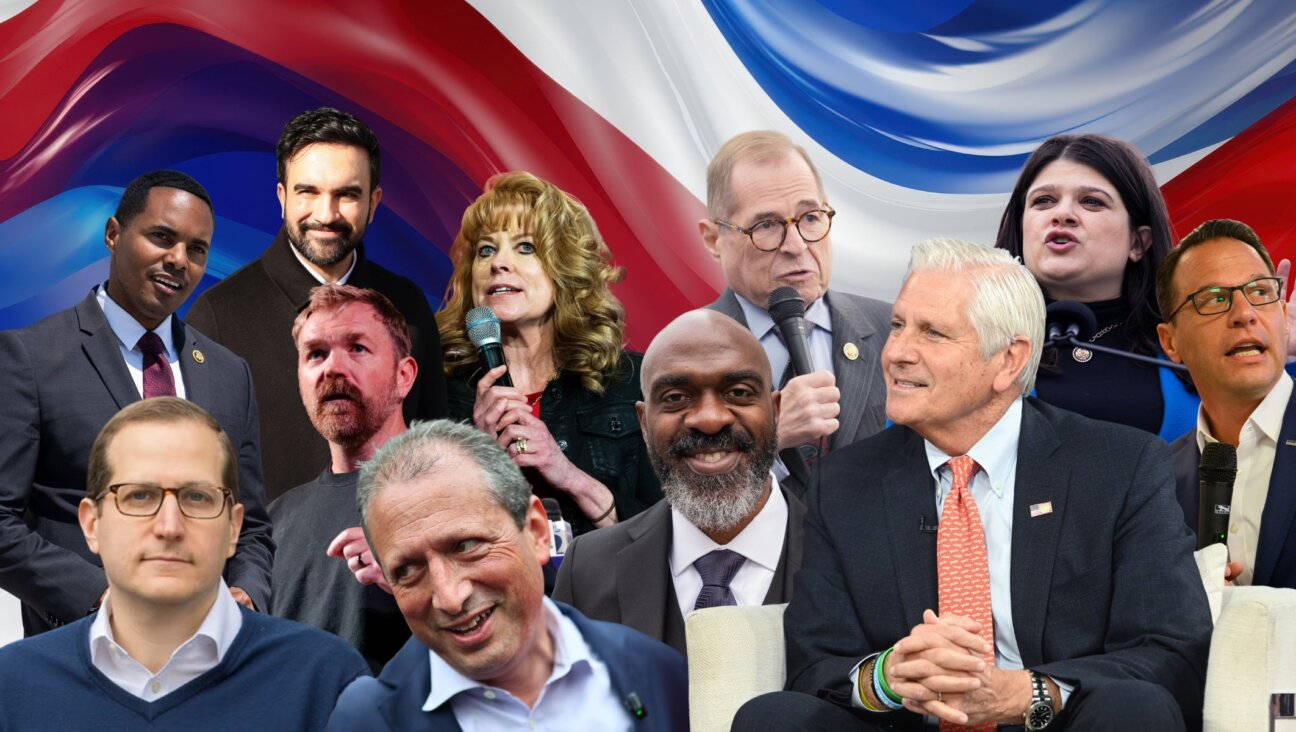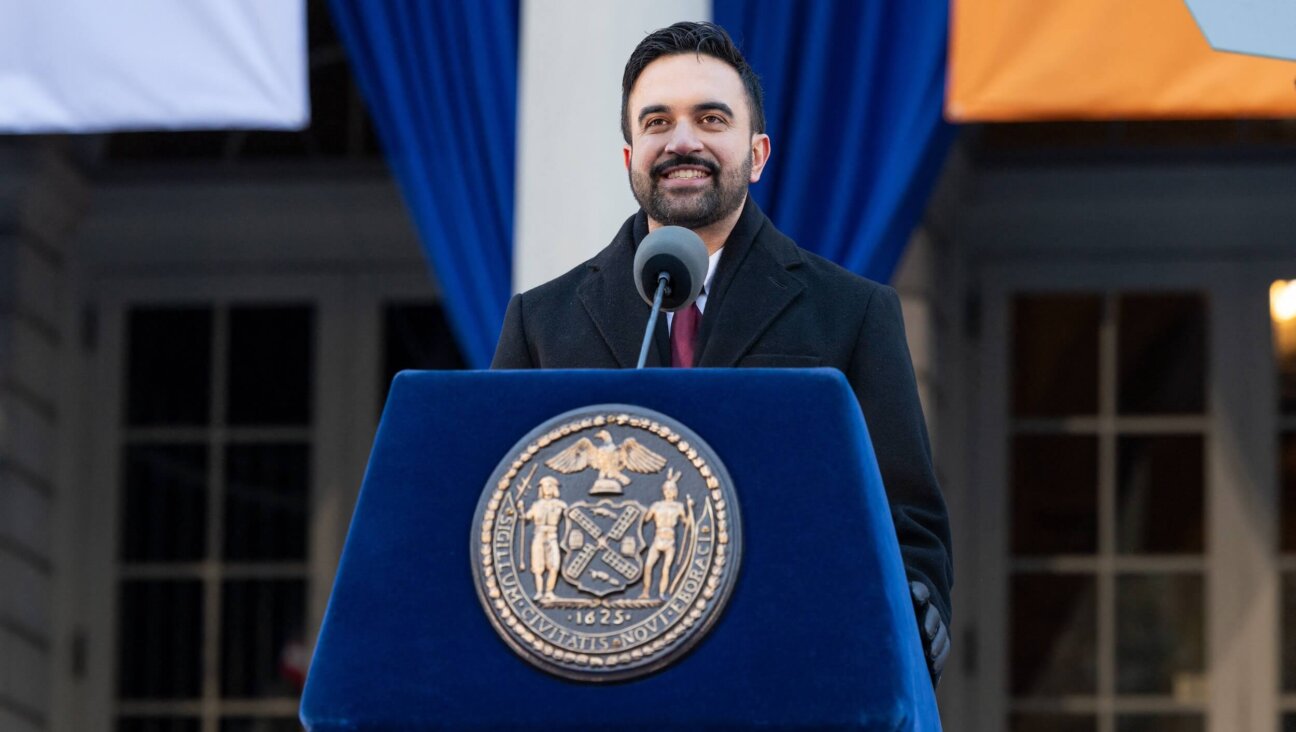Slim Majorities of Israelis and Palestinians Want Two-State Solution: Poll

Graphic by Angelie Zaslavsky
A joint Israeli-Palestinian poll has found that a small majority of Israelis and Palestinians still believe in a two-state solution that would end Israel’s military occupation and create an independent Palestinian state.
The poll, conducted by the Israel Democracy Institute and the Palestinian Center for Policy and Survey Research, found that 58% of Israelis support the two-state solution as opposed to 51% percent of Palestinians.
Support for the two-state solution has been on a general downward trend over the last 10 years, said Tamar Hermann, the IDI researcher who measured Israeli attitudes. But the fact that a small majority of Israelis still favor it is notable, she said, given that the Israeli media downplays support for a negotiated settlement with the Palestinians.
“I would say that the situation is less dismal than I thought,” Hermann said. “It is dismal but not as gloomy as it is being portrayed by the media and the decision makers and the leaders on both sides.”
On the Palestinian side, one notable finding is that more Palestinians in Gaza support a “permanent status package” for a two-state solution than Palestinians in the West Bank. This stance can be explained by the fact that most Palestinians in Gaza are refugees from the 1948 War, and refugees generally support an agreement that would resettle or compensate them, said Khalil Shikaki, the Palestinian pollster.
The poll also revealed that Israelis and Palestinians don’t trust each other. Calling it the “most disturbing, but not surprising” finding, the researchers learned that 89% of Palestinians feel that Israeli Jews are untrustworthy while 68% of Israeli Jews believe that Palestinians cannot be trusted.
At the present moment, Israelis are more afraid of Palestinians than vice versa. According to the survey, 65% of Israeli Jews fear Palestinians, while 54% of Palestinians do not fear Israeli Jews.
Hermann and Shikaki said that Palestinian knife attacks against Israeli Jews since last October have escalated Jewish fears of Palestinian violence. Shikaki added that the political discourse in Israel plays upon Israeli fears more than the Palestinian discourse plays upon Palestinian fears.
“I think Israeli leaders in general, and particularly [Prime Minister Benjamin] Netanyahu is interested in raising the issue about fear,” he said. “[Palestinian President Mahmoud] Abbas doesn’t play out this issue. The fear factor is not very present in Abbas’s speeches compared to Netanyahu’s.”
At the same time, both sides are worried that their daily lives will be affected by the conflict. Most Palestinians (76%) worry that they or a member of their family will be hurt by Israel or that their land will be confiscated or their home demolished. Similarly, most Israelis (71%) worry that they member of their family will be hurt by a Palestinian attacker.
It also turns out that Israelis and Palestinians do not understand their own societies when it comes to assessing the conflict. Although a majority of Israelis and Palestinians believe in the two-state solution, both sides think that their respective societies do not support it. Among Palestinians, 47% believe that a majority of Palestinians oppose the two-state solution. Among Israelis, 57% believe that a majority of Israelis oppose it.
This finding as “far reaching implications,” said Hermann. “If you think you belong to the minority then you will be much more silent,” she said. “If you think you belong to the majority you will be outspoken and confident in what you are trying to convince the public.”
Similarly, many Israelis and Palestinians believe that the other side does not want peace. Among Palestinians, 49% believe that most Jews oppose a negotiated settlement. Among Israelis, 44% believes the Palestinian majority opposes it.
But Hermann found a silver lining in this finding, noting that it’s surprising that these figures are not much higher. Many Israelis and Palestinians do understand that the other side wants peace, in spite of their leaders’ best efforts to convince them otherwise.
“The demonization of the other side did not yet succeed,” she said.
Contact Naomi Zeveloff at [email protected] or on Twitter @naomizeveloff

















